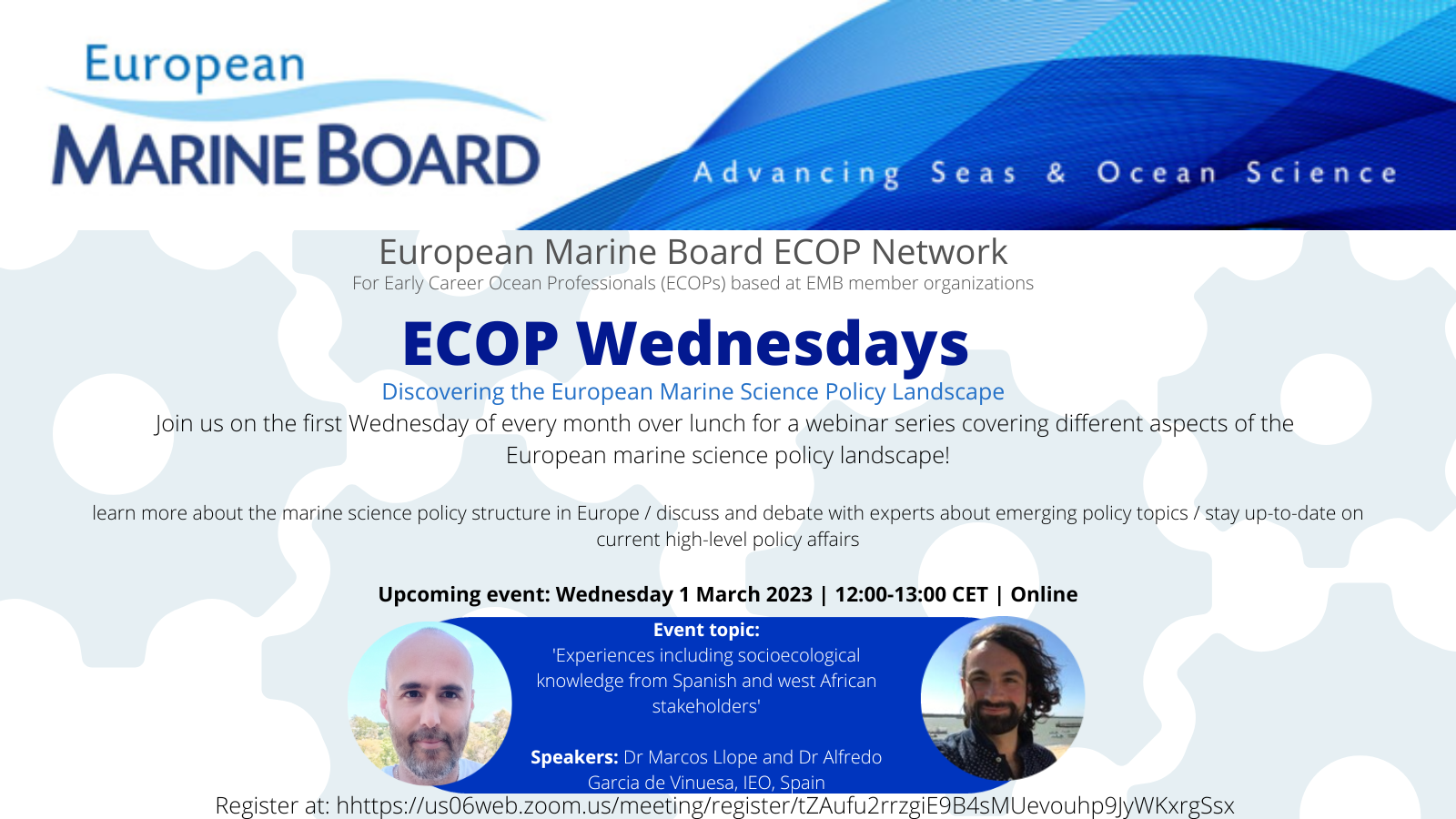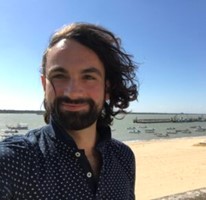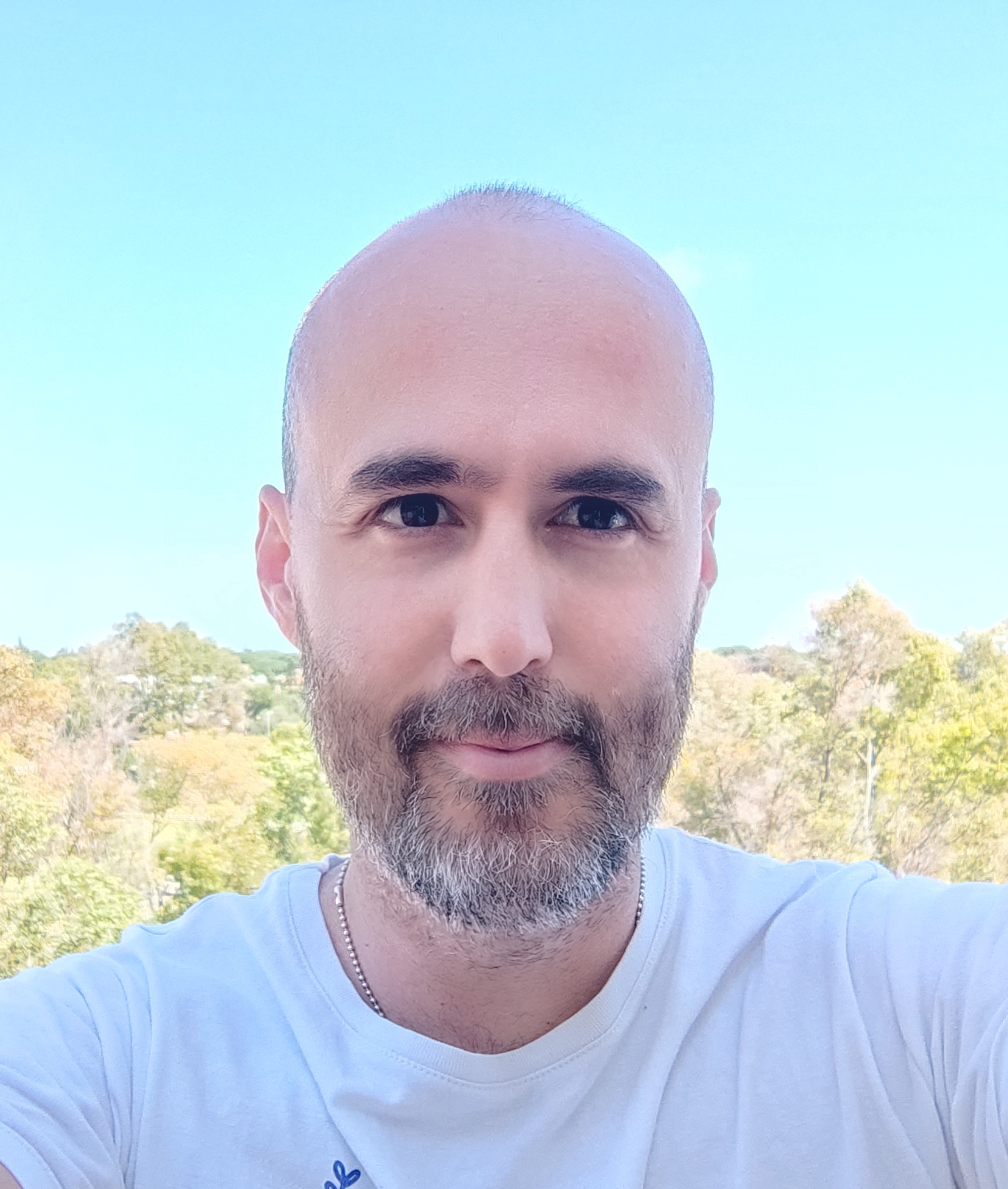
In this edition of the ECOP Wednesdays event series, hosted by the EMB Young Ambassadors and the EMB Secretariat for the EMB ECOP network, Drs Marcos Llope and Alfredo Garcia de Vinuesa spoke about 'Experiences including socioecological knowledge from Spanish and west African stakeholders'. Humans and their activities are an intrinsic part of the ecosystem. For this reason, the inclusion of the human dimension is necessary to understand how marine ecosystems work, and thereby to be able to advance toward an equilibrium between conservation and exploitation of oceans. Marcos Llope and Alfredo García de Vinuesa have worked on several projects together with stakeholders to extract socioecological knowledge about marine socioecosystems, integrating ecosystems characteristics with human impacts and sociological information. Concretely, they have been working in recent months with Spanish and Senegalese stakeholders and will talk about their experiences in the context of the SNAPQUIVIR and MISSION ATLANTIC projects.

Dr Marcos Llope is a researcher at the Spanish Institute of Oceanography (IEO-CSIC). He is interested in how marine ecosystems respond to climate and fishing and how this knowledge can contribute to the development of Ecosystem-Based Management (EBM). Over the years he has had the opportunity to work on a number of European marine systems: the Bay of Biscay, the North Sea, the Black Sea and the Baltic Sea, where he looked into ecological properties such as the likelihood of regime shifts or their resilience (see publications here). Currently, his research focusses on the Gulf of Cadiz – Guadalquivir estuary (SNAPQUIVIR) and the Canary Current large marine ecosystem (MISSION ATLANTIC) and has taken an explicit socio-ecological perspective. Marcos is also involved in international organisations and committees, such as ICES, IPBES, EMB or the EU SFPA JSC. Being at the interface between science and policy these platforms provide a way to turn science into advice, have an impact on society and (hopefully) on the sustainable use of our oceans.
 Dr Alfredo Garcia de Vinuesa obtained a BSc in Marine Science in 2010 from the University of Cádiz, and just after, he moved to work in the Barcelona Institute of Marine Science (ICM-CSIC). From there, he completed his studies with an MSc in Biodiversity and a PhD in Marine Science, both granted by the University of Barcelona. During his PhD, Alfredo focused his research toward the study of trawling impacts over especially vulnerable Mediterranean marine ecosystems to improve their management, working very close with stakeholders like fishermen’s, NGOs and policy makers. Since then, Alfredo has been a great defender of participative management. He has now returned to Cádiz, where he is currently a Postdoc at the Spanish Institute of Oceanography (IEO-CSIC) working together with stakeholders, and trying to improve current Guadalquivir Estuary management through participative processes.
Dr Alfredo Garcia de Vinuesa obtained a BSc in Marine Science in 2010 from the University of Cádiz, and just after, he moved to work in the Barcelona Institute of Marine Science (ICM-CSIC). From there, he completed his studies with an MSc in Biodiversity and a PhD in Marine Science, both granted by the University of Barcelona. During his PhD, Alfredo focused his research toward the study of trawling impacts over especially vulnerable Mediterranean marine ecosystems to improve their management, working very close with stakeholders like fishermen’s, NGOs and policy makers. Since then, Alfredo has been a great defender of participative management. He has now returned to Cádiz, where he is currently a Postdoc at the Spanish Institute of Oceanography (IEO-CSIC) working together with stakeholders, and trying to improve current Guadalquivir Estuary management through participative processes.
You can find the slides from Marcos here and from Alfredo here, and rewatch the presentations here.
For any questions, please send an email to info@marineboard.eu